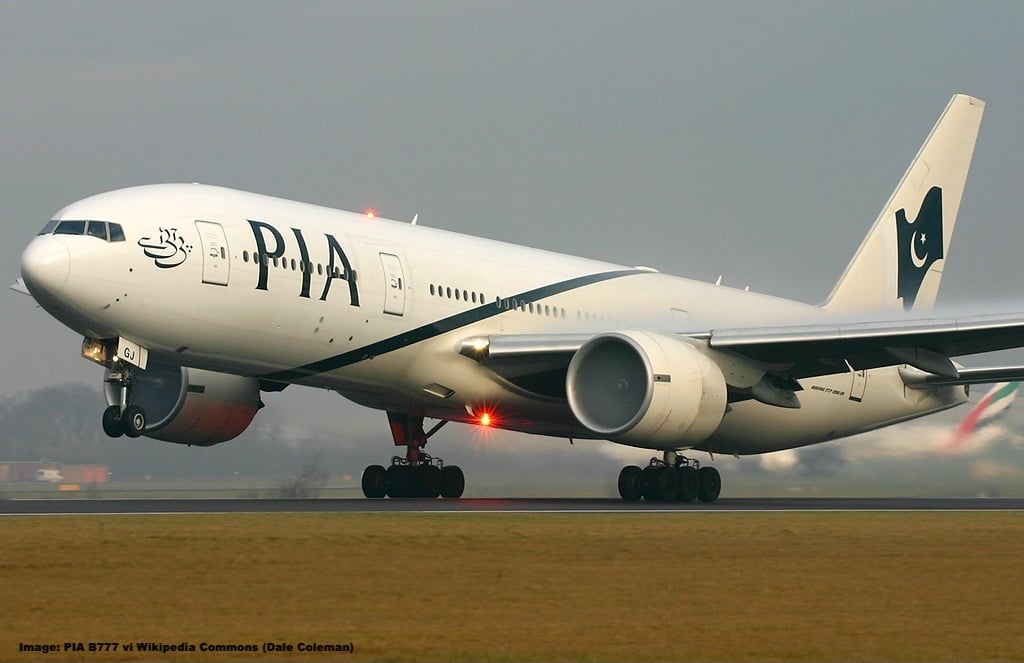Pakistan International Airlines is an international airline that serves as Pakistan’s national flag carrier, reporting to the Secretary to the Government of Pakistan for Aviation. Its primary hub is Karachi’s Jinnah International Airport, with secondary hubs in Lahore’s Allama Iqbal International Airport and Islamabad’s Islamabad International Airport. But did you know this national carrier had several fraudulent pilots on staff?
A Pakistan Airlines Airbus attempted to land with the landing gear still up in 2020. The plane then crashed, killing 97 people. An investigation later revealed that 150 of the airline’s 434 pilots had bogus or suspicious flying licenses.
The Fraudulent Pilots
The government said nearly a third of the country’s pilots obtained their flying licenses fraudulently, prompting Pakistan’s national airline to ground 150 of its pilots on Thursday.
Ghulam Sarwar Khan, Pakistan’s aviation minister, said on Wednesday that 262 Pakistani pilots had cheated the licensing process by having others sit for their exams and by other means. He announced the findings of an investigation after the accused pilots worked for Pakistan International Airways, private domestic Pakistani carriers, and some foreign airlines.
The names of these pilots still need to be released, leading to industry confusion. It is still being determined where the 112 who are not employed by PIA work. An aviation ministry official stated that they were in the process of informing national and foreign regulators in countries where the pilots were believed to work. However, he declined to specify which countries.
Pakistan International Airlines requested official confirmation of the identities of these pilots in a letter to Pakistan’s aviation regulator on Thursday. According to airline officials, the airline believes that 150 of its pilots have suspicious credentials and has barred those suspected from flying until the airline receives an official list of those accused.
It is a grave concern for us as many out of these 150 pilots must be flying PIA aircraft, which cannot be allowed after disclosure of fake or suspicious licenses scam.
Arshad Malik, Chief Executive, Pakistan International Airlines
(Source: The Wall Street Journal)
What Effect Did This Incident Have on Pakistan Airlines?
The separate investigation into pilot credentials began in 2018 after a PIA plane skidded off the runway while landing in the remote western town of Panjur. That pilot had also made simple mistakes, and they were suspected when the airline checked his credentials. The airline notified the government, which launched an investigation into the validity of all license exams. The findings of that investigation were made public this week.
Airlines officials say losing more than a third of its pilots will severely disrupt PIA’s services. The government has tasked the carrier with bringing back tens of thousands of Pakistanis stranded abroad due to the coronavirus pandemic.
According to a person familiar with the situation, the Gulf Civil Aviation Authority, which is in charge of approving licenses for pilots operating in the region, is aware of the potential problem and has reviewed validations awarded to pilots with Pakistani licenses over the last two years. According to the source, all appear to have obtained their licenses legally.
According to Malik Tariq Ali, a former head of Pakistan’s Flight Engineers National Association, the country’s aviation industry’s problems were much broader than fake pilots, and standards had crumbled since the 1980s—along with many of the country’s institutions. He claimed that political interference, cronyism in hiring, and corruption had harmed the national airline and the regulator.
He claimed that the Civil Aviation Authority administered the dubious exams, which then issued the pilot licenses. (Source: The Wall Street Journal)
